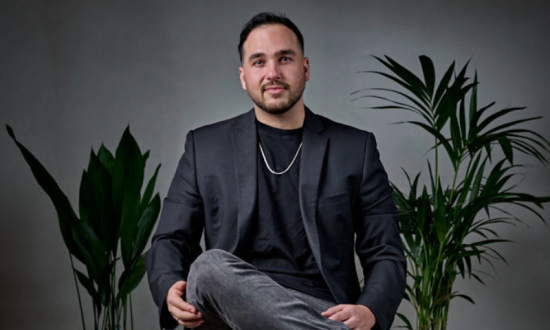Joseph Black is a co-founder at UniTaskr, a leading platform that connects students with freelance opportunities, providing practical experience and upskilling the future workforce. With a background in marketing and a passion for innovation, Joseph is dedicated to bridging the gap between education and industry, preparing individuals for the dynamic future of work.
In a recent interview with CXO Magazine, Joseph Black discussed his experience with the Future of Work and Education. He shared his views on the impact of education and the gap between education and the skills needed for the future, traditional workplace and classroom environments, and many more.
How do you envision the future of work and its impact on education?
In my opinion, the future of work is heading towards a more flexible and dynamic environment, which will significantly impact education. Traditional career paths are being replaced by project-based, freelance, and gig opportunities. This shift requires education to be more adaptable, focusing not only on foundational knowledge but also on practical skills and continuous learning. The integration of real-world experiences into curricula will become essential, preparing students to navigate and succeed in this evolving landscape.
What role do you believe technology will play in shaping the future of work and education?
Technology will be a cornerstone in shaping both the future of work and education. It will facilitate remote work, virtual collaboration, and access to global opportunities, breaking down geographical barriers. In education, technology will enhance learning through online platforms, interactive tools, and personalized learning experiences. The use of AI, VR, and big data will provide insights into student performance and learning styles, allowing for tailored educational approaches that maximize individual potential.
How can we ensure that education prepares individuals for the evolving demands of the future workforce?
In my opinion, education needs to adopt a more dynamic approach to prepare individuals for the evolving demands of the future workforce. This includes integrating practical experiences, such as internships and project-based learning, into curricula. There are platforms available that can complement traditional education by providing students with opportunities to apply theoretical knowledge in real-world settings, thereby bridging the gap between academia and industry.
What are the key skills and competencies that will be essential for success in the future of work?
The future of work will require individuals to possess a combination of technical and soft skills. Technical skills, such as data analysis, coding, and digital literacy, will be crucial due to increasing automation and technological advancements. Additionally, soft skills like communication, adaptability, and problem-solving will be essential for navigating a rapidly changing work environment.
How can organizations and educational institutions collaborate to bridge the gap between education and the skills needed for the future?
Organizations and educational institutions can collaborate by creating partnerships that integrate real-world applications into academic programs. This can include internships, mentorship programs, and collaborative projects. By doing so, students gain practical experience and insights into industry demands. Additionally, companies can provide input on curriculum development to ensure that the skills being taught align with the needs of the workforce. This collaboration helps create a seamless transition from education to employment.
With remote work becoming more prevalent, what changes do you foresee in the traditional workplace and classroom environments?
Remote work has already led to significant changes in traditional workplace dynamics, including a shift towards virtual collaboration and flexible work arrangements. Similarly, in education, we can expect to see a greater emphasis on online learning platforms, asynchronous teaching methods, and virtual collaboration tools.
How can lifelong learning and continuous education support individuals in adapting to the changing landscape of work?
Lifelong learning and continuous education are crucial for individuals to stay relevant in a rapidly changing work environment. As industries evolve and new technologies emerge, the skills required for success will also change. Continuous learning ensures that individuals can update their skills, learn new tools, and adapt to shifting demands. Encouraging a culture of lifelong learning within organizations and providing access to resources for professional development will help individuals remain competitive and capable.
What strategies can organizations implement to foster a culture of innovation and adaptability in the workplace?
Organizations can foster a culture of innovation and adaptability by promoting experimentation, embracing diversity of thought, and encouraging continuous learning. Creating cross-functional teams, providing resources for professional development, and recognizing and rewarding innovative ideas can also contribute to cultivating an innovative workplace culture.
In what ways can educational institutions leverage emerging technologies and pedagogical approaches to enhance learning experiences?
Educational institutions can leverage emerging technologies such as virtual reality, artificial intelligence, and gamification to enhance learning experiences. By incorporating interactive and immersive learning environments, institutions can cater to diverse learning styles and provide more engaging educational experiences.
How can we address the potential challenges and inequalities that may arise in the future of work and education?
Addressing potential challenges and inequalities in the future of work and education requires a multifaceted approach. Ensuring access to quality education and training for all individuals, regardless of socioeconomic background, is crucial. Policies and initiatives that promote digital inclusion, provide financial support, and create opportunities for underrepresented groups can help bridge the gap. Additionally, fostering partnerships between the public and private sectors can create more inclusive and equitable opportunities for all.

